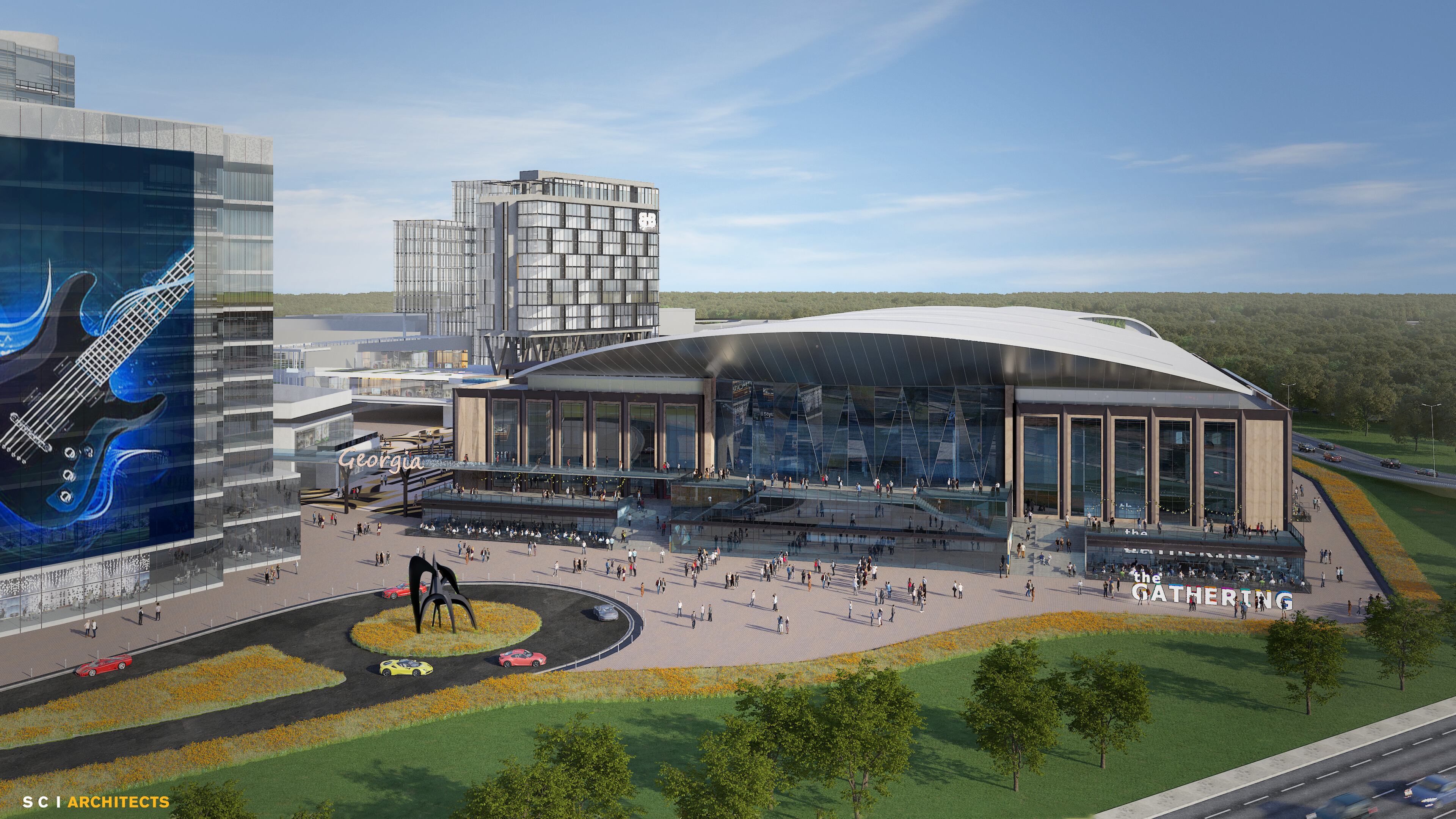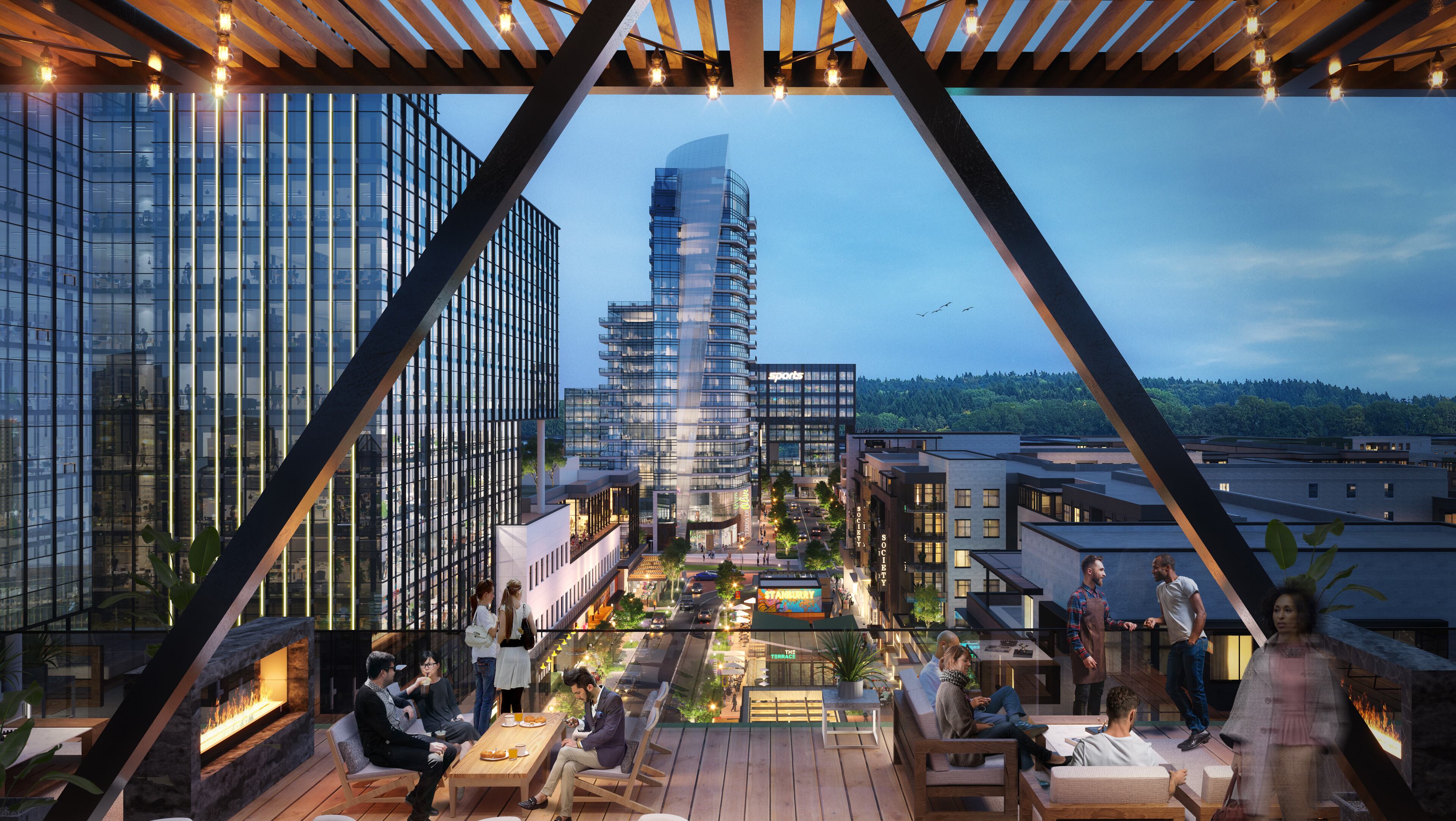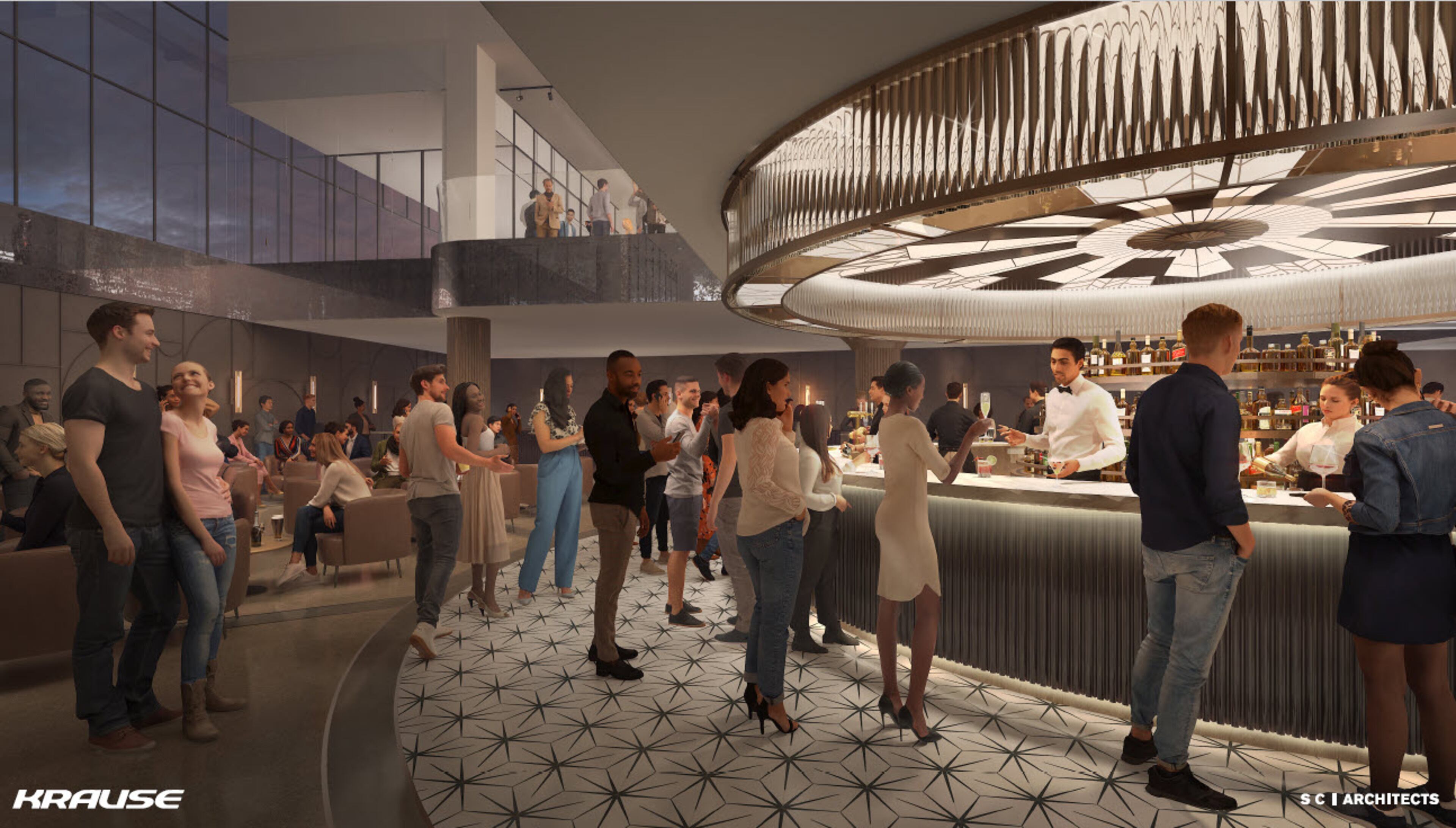Forsyth grapples with unknowns of $2B arena and entertainment district










Days before a developer unveiled plans last month for a potential NHL arena and entertainment district in Forsyth County, a document landed in two county commissioners’ inboxes with a list of talking points.
The five-page document, sent April 10, talked up the $2 billion project’s walkability, how it could become the home of a hockey team and allow county high schools to hold graduations. But to more pointed questions that might come from the public, which were labeled “worst case Q&A,” the developers offered county officials no answers.
”What is this development going to cost the taxpayers of Forsyth County?“
”Is this going to raise my property taxes?“
”Is MARTA going to eventually come here?”
To each of these and several other questions, the development team of The Gathering at South Forsyth left only blank space. Nearly a month later, Forsyth residents and commissioners are still seeking answers.
“You don’t get the public support if you’re not transparent and honest with them,” Commissioner Todd Levent told The Atlanta Journal-Constitution.

On Tuesday, the five-person county commission will consider starting their own economic impact studies to evaluate the project and will debate whether to rewrite their zoning code to allow for more density. Plans for the 84-acre project along Ga. 400 include the 18,000-plus seat arena, 2,400 apartments, retail, offices and hotels.
Alex Warner, vice president of economic development with Forward Forsyth, the county’s economic development arm, said the independent study will help determine whether the Gathering is self-sufficient or if it needs public support.
“We make sure that an incentive is the final step to win a project to the county, not a criteria for a project to survive in the county,” he said. “... We’re not just going to incentivize a company just because it’s glamorous and glitzy.”
‘Worst case’ questions
The AJC obtained the talking points document, which is formatted in question-and-answer style, via the Georgia Open Records Act. Under the heading “worst case Q&A” were questions about impacts to quality of life, affordable housing, traffic and other topics Forsyth residents say are vital to know.
Questions about MARTA and affordable housing also touch on politically thorny questions for Forsyth, one of the more conservative counties in metro Atlanta.
Skeptics of the Gathering project have already raised issues of high-density and potential crime in warning about the project, echoing arguments made over the years against MARTA expansion that have often carried racial and class undertones.
The preparation materials were created by the development team’s public relations firm Communications 21.
Sharon Goldmacher, the firm’s president and CEO, said the document is continually updated and the AJC received an early version that will be fleshed out ahead of upcoming public meetings. She said the “worst case” questions were the ones they deemed “tough,” but declined to provide more information.
“It’s literally to prepare the team, just as you would prepare anyone who is going to engage either with media or with the public,” she said.
Forsyth arena prep materials by Zachary Hansen on Scribd
The project is backed by Vernon Krause, the owner of 18 auto dealerships across four Southern states who has yet to publicly speak about the development. Instead, consulting firm Stafford Sports has been the public face of the project, pitching the dream to residents and county leaders.
Hockey dominated regional discussions around the project, but locals are focused on how the development would impact their commutes, identity and pocketbooks.
“It’s almost like a small city that they’re proposing,” said Patrick Foster, managing director of Smart Growth Forsyth County, a grassroots organization aiming to temper development.
He raised concerns over modifying the county’s zoning requirements to allow for thousands of apartments. Forsyth’s current code only allows for six apartments per acre, while the Gathering would be roughly four times as dense. Levent echoed those worries.
“Our citizens get mad if we do four units an acre,” he said.
In public meetings and interviews, the development team has said details like the specific number of apartments are still fluid.
Forsyth is metro Atlanta’s fastest-growing county and one of the state’s most affluent, but it’s an area that carries longtime stigmas.
A conservative bastion about 30 miles north of downtown Atlanta, the county’s history is tainted by KKK rallies and a well-documented purge of its Black residents a century ago. In 1987, Oprah Winfrey visited to document a “Keep Forsyth white” demonstration.
Two-thirds of Forsyth voters who cast ballots backed former President Donald Trump in the 2020 election.
But Forsyth was also home to supportive Black Lives Matter rallies after the 2020 killing of George Floyd. And the county has also worked to cultivate tech companies and boasts a fast-growing Asian population.
Four of the “worst case” questions focus on taxpayer funding of the arena. Public financing of stadiums is common in the U.S., though economists say the support often does not provide a commensurate return on the taxpayers’ investment.
Melissa Haley, a Forsyth resident and new mother, said she’s willing to pay a little more in taxes for a shiny development close to home, even though she knows many of her neighbors disagree.
“There’s always going to be something that we might not necessarily sign up for but it benefits the community…,” she said, mentioning taxes for schools before parenthood. “… If you want to live in an affluent area and have nice things and have your property value continue to go up, you kind of have to be balanced and allow certain things to offset your taxes.”


